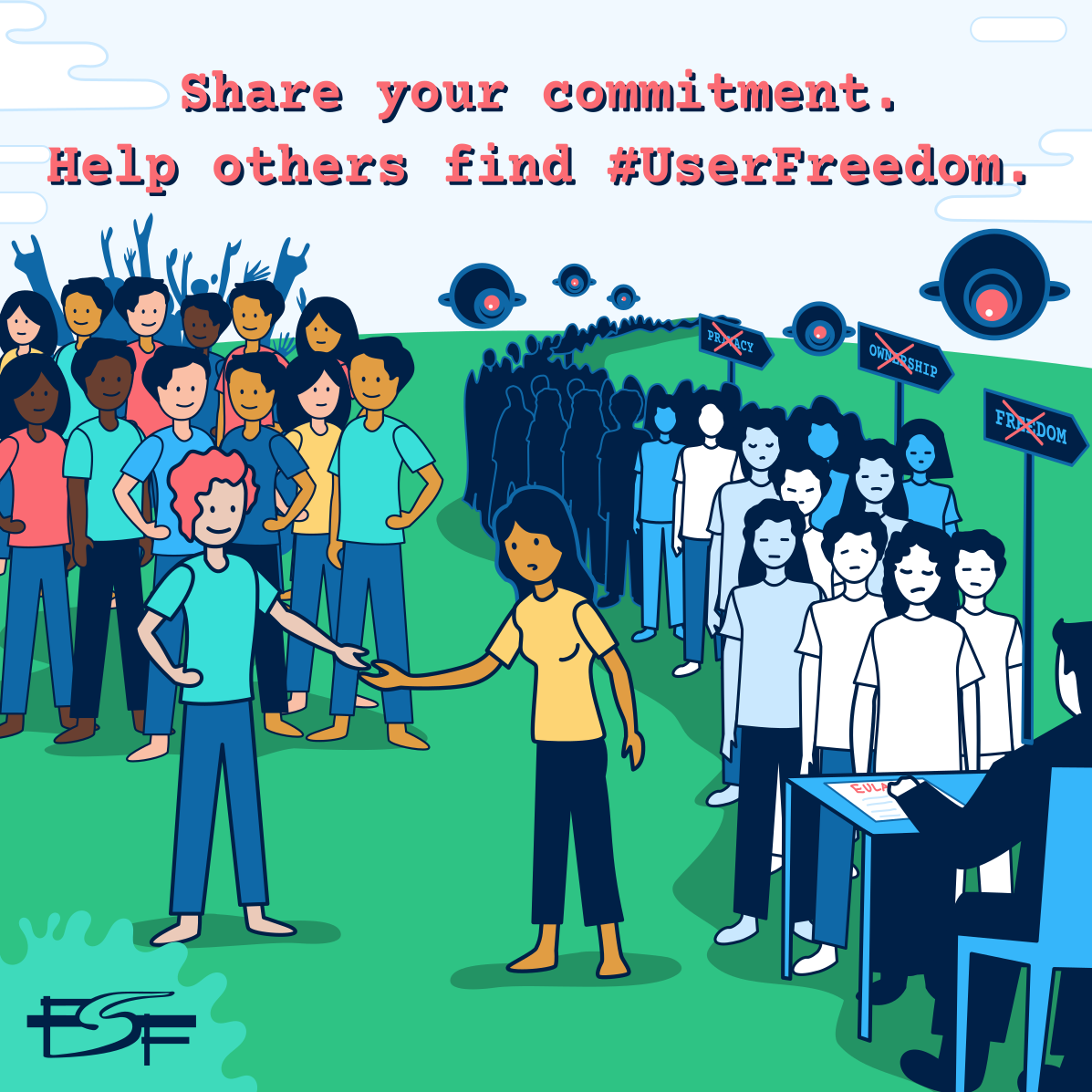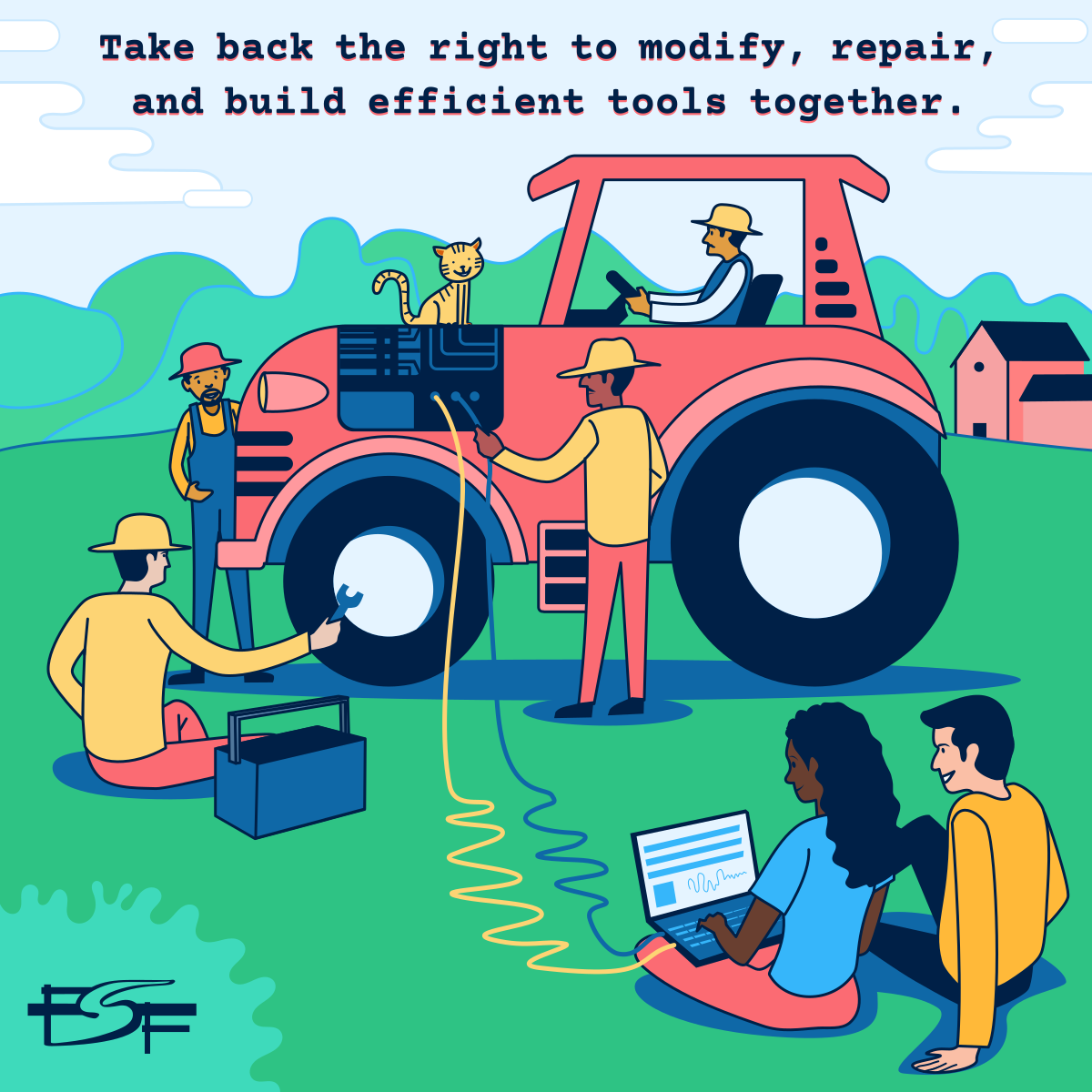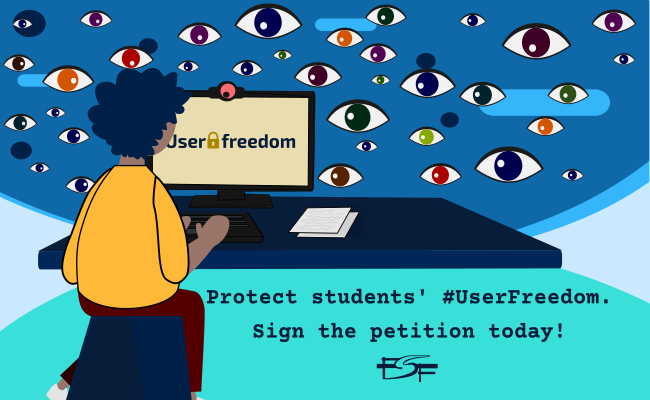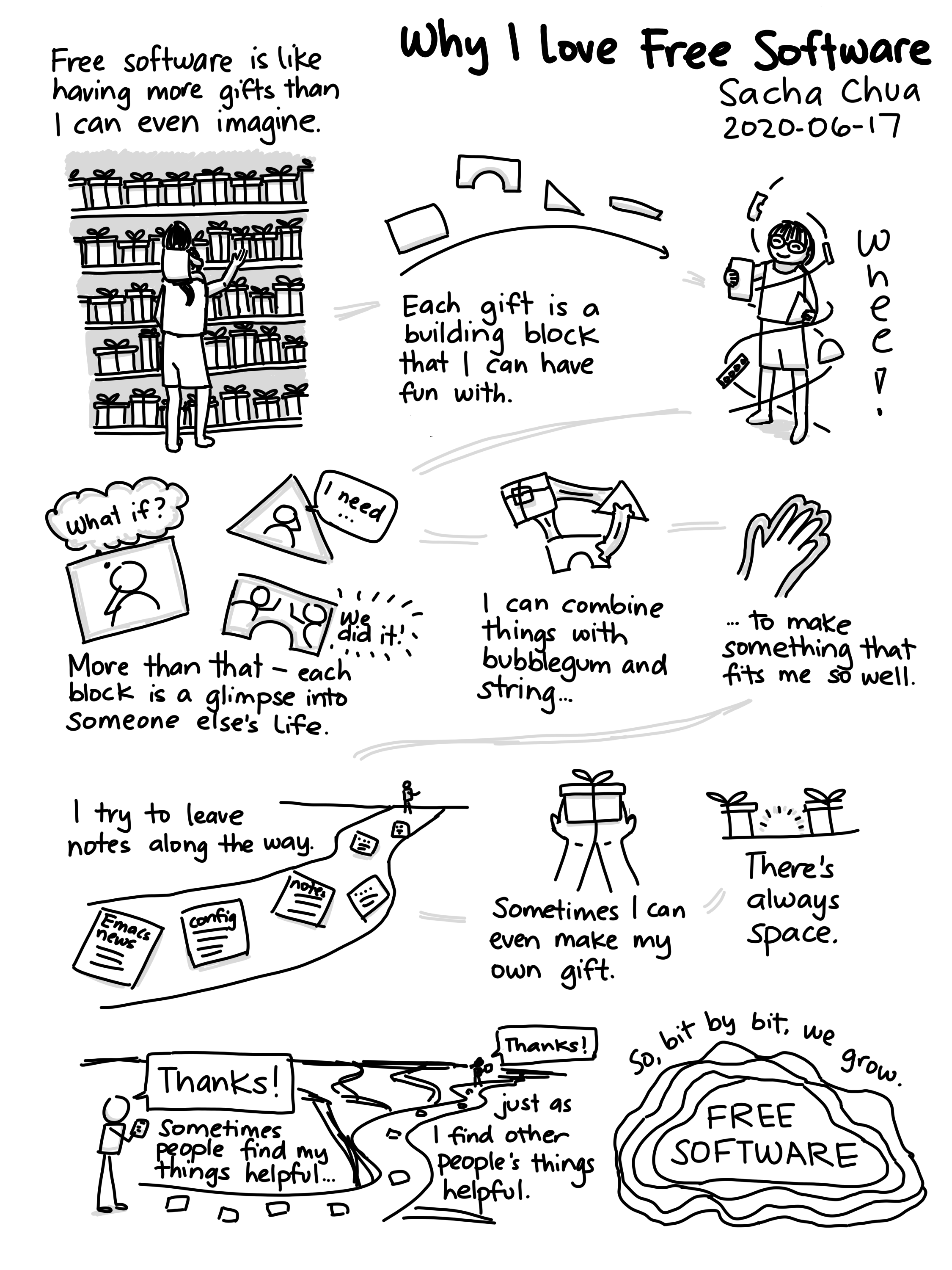Free software in business: Success stories
jeudi 30 juillet 2020 à 19:55Even though the vast majority of software development and news articles on technology still predominantly focus on proprietary software, public pressure is increasingly shifting the conversation to include ethical considerations. Whenever you feel that free software is not making strong enough waves, I urge you to look at the LibrePlanet conference video collection (or listen to the talks), to strengthen your belief. Making free software a kitchen table issue in every home can at times seem like an insurmountable challenge, but there are so many community members doing incredibly inspiring work driving user freedom forward.
This is why we have been updating our "Working Together for Free Software" pages in the last few weeks, with new testimonials from activists and enthusiasts. We have heard why people believe in free software, and how free software can make a difference in all industries. This third blog post in the series inspired by interviews with community members will bring some attention to the success that people have had advocating for free software through their occupations. It manifests how appeals to user freedom, and successful free software implementations, are driving forces behind the advancement of businesses all over the world.
Adam Monsen, senior director of engineering at C-SATS R&D, and a founder of SeaGL, the Seattle GNU/Linux Conference, puts it simply:
Free software is the backbone of our robust software supply chain at C-SATS. We know we'll always be able to improve or customize it.
But for some people, free software is not an option their employer presents for them, or it doesn't seem like a natural go-to for the business or its customers. Alper Atmaca, a law professional, and board member of the Free Software Association (Özgür Yazılım Derneği) in Turkey, runs into this daily, and poetically explains:
A needle that refuses to go through certain fabric is as ridiculous as today's computing restrictions. But we laugh about the former, and continue to use the latter.
As a law professional who works in criminal and data protection cases mainly, I see this is truer everyday. It is generally accepted that a law office runs on overpriced, hyped nonfree software. That expectation drives an unwarranted standardization of tools that do not necessarily drive the client's best interest in law spheres.
Alper starts conversations about free software every day, and convinces his clients of its value in his professional field. You can read his entire statement to learn more about how he invests time in his clients to educate them. He states:
I am proud to have had some clients who became even fiercer freedom advocates than I am.
Individuals who bring their advocacy to their workplace can make a huge difference for the movement. We can benefit greatly if we bring conversations around software freedom to the conference table as well as the kitchen table. In recent years, we have seen organizations that prioritize freedom secure a stronger foothold in a range of industries. One example is Nextcloud, the popular file sharing and collaboration platform founded by Frank Karlitschek:
Working in a global community where decisions aren't purely dependent on boring company politics and where code is reused instead of reimplemented is just so much more interesting and rewarding!
He continues:
[...] when I was young, free software was still almost always a hobby, something you did as a student, until you got a "real" job. One where you showed up in a suit, did things you knew were often useless, working on projects that were not going anywhere and didn't help anyone. I wanted to change that for myself, and later, also for others. And today, my company employs several dozen developers, and we're hiring new ones all the time!
As Adam, Alper, and Frank show us, the use of free software in business for reasons related to freedom is not just viable, but advantageous. You can advocate for free software within your industry by making an effort to show how free software fits your clients' needs, and your passion for free software can translate into a successful business. Your advocacy through your workplace will help make progress towards free software becoming a true kitchen table issue.
Check out our working-together pages for the complete testimonials.
Free software is an idea, a set of principles, and a community that's been growing in both size and importance every day for over 35 years. This set of principles needs to be protected against constant threats, like the novel coronavirus, and the billions of dollars from governments and proprietary software corporations that we're up against. It's an uphill battle, but we most certainly are making headway.
Right now, we are very close to reaching our associate member goal before August 7th. A larger community means more speaking power, and a greater ability to uplift community members who refuse to accept the proprietary status quo, like the inspiring group of people we have interviewed over the past few weeks.
To help raise awareness, you can also share your own story about your work or business using free software and how you are defending #UserFreedom via social media using the hashtag and one of our beautifully designed free software images. You can connect with community members on our LibrePlanet mailing list, or, if you are an FSF associate member, on the forum. Knowing that there are people standing up for freedom all over the world is so inspiring to us, and we hope it's inspiring to you as well.
Thank you for being part of this fight.
Illustration Copyright © 2020 Free Software Foundation, Inc., by Raghavendra Kamath, licensed under Creative Commons Attribution 4.0 International license.



